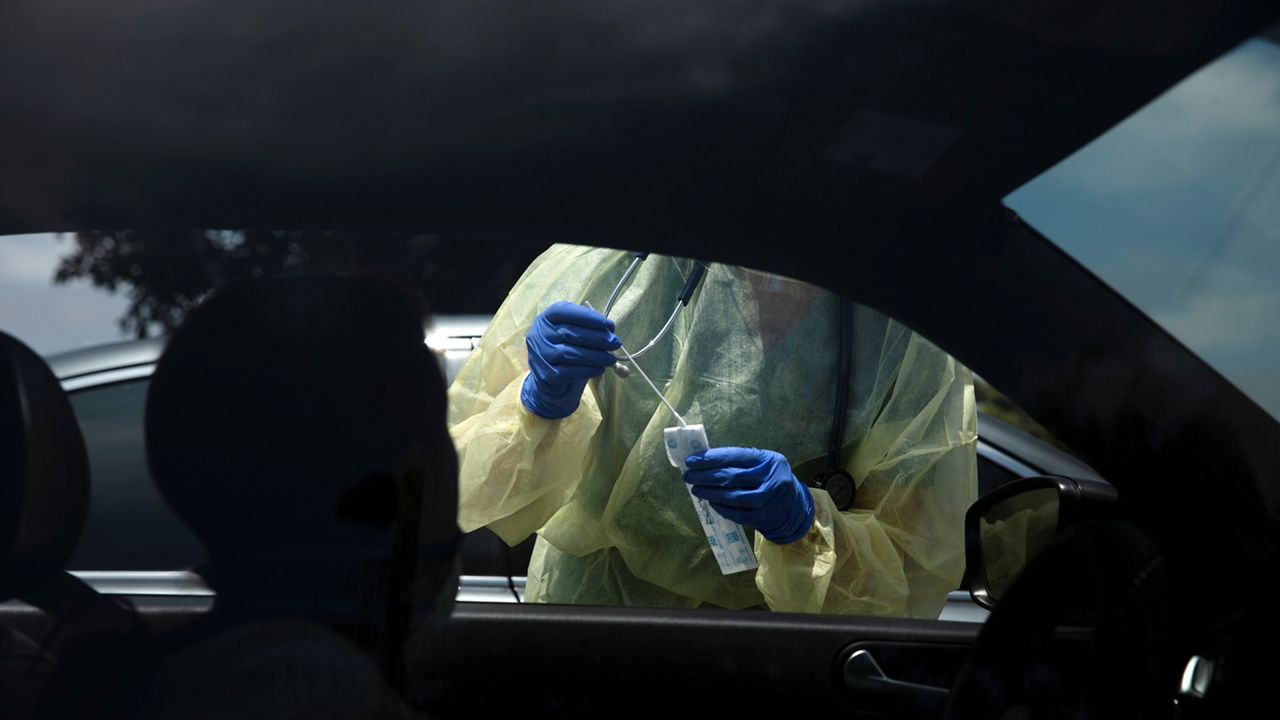LOUISVILLE, Ky. — The omicron variant of COVID-19 officially arrived in Kentucky last Friday, with confirmed cases in Fayette, Jefferson, Kenton, and Campbell counties. By Monday, Gov. Andy Beshear said the variant is “probably in every county by now.”
With a surge in cases expected as the new variant sweeps through the state, here’s what we know about omicron in Kentucky so far.
Beshear announced the first confirmed case in a tweet Friday evening. Kentucky was one of the last states to have a confirmed case of the variant, which originated in South Africa and has spread around the world in only a few weeks.
But it's clear that the variant was present in Kentucky long before last Friday. On Tuesday, Dr. Sarah Beth Hartlage, the Associate Medical Director of Louisville's Health Department, said the city's first confirmed omicron case comes from someone who tested positive in early December. "Those of us who follow these things are well aware that it's probably been here for a couple of weeks, we just haven't managed to capture it in a lab setting," she said.
Officials at UofL have also confirmed that wastewater samples taken in Louisville on Dec. 13 indicated the presence of the variant. On Dec. 18, the CDC reported that omicron has become the dominant strain of COVID in the U.S., accounting for more than 70% of new cases.
In practical terms, the omicron variant “is probably one of the most transmissible or contagious infections we’ve had in the last century at least,” said Kentucky Public Health Commissioner Dr. Steven Stack. The virus is thought to be three times more contagious than the delta variant, with cases in the U.S. doubling roughly every two days.
On Saturday, Beshear put it bluntly: “As contagious as this is going to be, you are going to get the omicron variant.”
Breakthrough cases will be more likely with omicron, Stack said. But symptoms are likely to be mild in those cases. He emphasized that the best way for people to get protected from the virus is with a COVID-19 vaccination. And for those who are already six months removed from their shots, a booster is recommended.
Kentuckians, however, are lagging in both of those areas. Only 54% of the state is fully vaccinated and only 18% of people have received a booster.
Of particular concern are the parts of the state with the lowest-vaccination rates. Currently, there are 20 counties with fewer than 40% of their population vaccinated. “If it sweeps through your community, it’ll hit everybody quickly and that's a recipe for disaster,” Stack said.
Early research shows that people who have been previously infected with COVID-19 are less protected than those who have been vaccinated and boosted. Research from the Imperial College London found that those who have recovered from COVID are 19% protected against omicron, similar to those who have been vaccinated but not boosted. Those who have gotten a booster are 55% to 80% protected.
Health officials said rising case counts and the subsequent effect on hospitals is one of the major concerns surrounding omicron. So far, hospital admissions have not reached a point of concern, though UofL health currently has twice as many COVID patients than it did in November, according to Dr. Valerie Briones-Pryor.
“It’s a challenge right now and it is a concern,” she said. “We are not considered in a surge right now, but we are already seeing a lot of utilization of resources, which is a concern as we know omicron is here and worried about what will happen over the next few weeks, especially as people gather for the holidays.”
In a recent press briefing, Beshear stopped short of calling for any new mandates, or shut downs to fight the predicted surge in COVID cases. He did say that school districts and business owners should ensure the safety of students and workers by requiring masks.
“This thing is going to spread so fast that any school that is not doing mandatory masking, any business that is not having their folks wear masks, could see entire schools, entire shifts, get infected very, very quickly,” Beshear said.
Louisville Mayor Greg Fischer on Tuesday was asked if he is considering reducing capacity at businesses, or other mandates to slow the spread of the omicron variant. He didn't rule out the possibility, but said "We all know by now what we need to do and what works ... but if the city gets overrun by this variant, we're going to consider other measures." He added, "Hopefully we won't have to do that."
Public health officials have advised people planning to gather for the holidays to take a COVID test before doing so and there’s some evidence that people are listening. Test demand has reportedly gone up in Louisville, Lexington and Northern Kentucky. Dr. Majors Badgett, of Newport’s Ethos Laboratories, told Spectrum News 1 that the facility has recently doubled the number of tests it's performing.
People can find places to recieve a COVID test at this link.
Nationally, rapid at-home tests have become hard to find, but as of Wednesday there are still some free tests available at multiple locations in Louisville. The city has partnered with dozens of businesses and community centers to distribute those tests.
On Tuesday, President Biden announced plans to send 500 million at-home tests to Americans who request them through a federal website. That process has not yet begun though.



